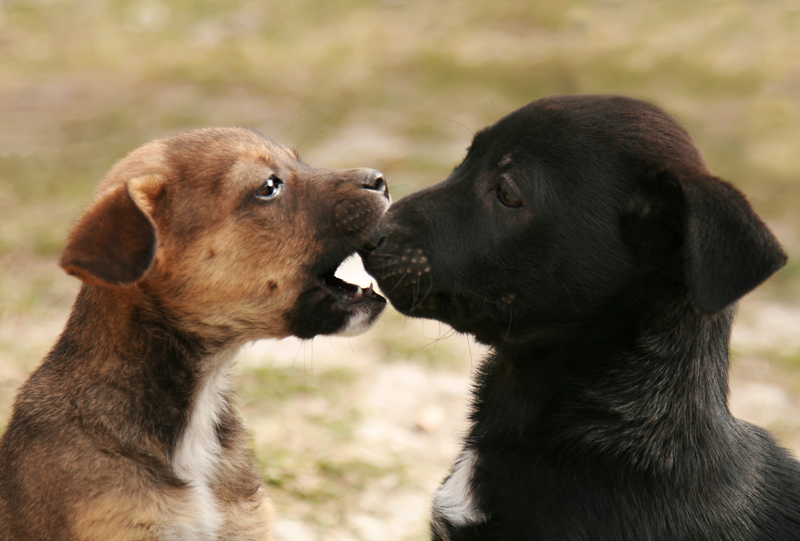China Grove Animal Hospital
(704)857-1017
chinagroveah.com
 DHPPV -- What in the world is that?
At China Grove Animal Hospital, we believe it is important to educate our clients. Over the years, many of you have seen the term "DHPPV" and wondered, "what in the world is that?" Well, let us explain:
DHPPV is a combination vaccine that provides your pet with protection against 4 common dog diseases. D The 1st disease we vaccinate against is Canine Distemper. This is a highly contagious viral disease that affects a dog's respiratory, gastrointestinal, ophthalmic and nervous systems. It is mainly spread through the air by contaminated respiratory secretions (coughing and sneezing). It can also be spread by contact with any other bodily secretions from an infected animal (urine and feces for example). This disease can be fatal.
H/A2
The 2nd disease is Canine Hepatitis. This disease is caused by an Adenovirus so you may see "A2" instead of "H" in the abbreviation. This virus is spread in a similar fashion to the distemper virus. Since this virus can live in the environment for a long time, you may bring the virus home to your dog without realizing it. This disease mainly affects the liver but it can also affect the kidneys and eyes.
P
Parainfluenza is a highly infectious virus that spreads quickly among dogs kept in close quarters and can seriously damage the respiratory system. This is part of the Kennel Cough Complex and is included in the DHPP vaccine as well as the Bordetella vaccine.
P
Parvo is a very common viral infection that usually strikes puppies less than a year of age and older, unvaccinated dogs. This virus is spread through direct contact with an infected dog's feces or vomit or you can bring it to your dog on your shoes. This virus can easily cause the death of an infected dog.
V
Vaccine
The DHPPV vaccine stimulates your pet's immune system so it will be better prepared to protect your pet against these diseases. There is treatment for some of these diseases but there are no guarantees of a successful outcome. The best way to protect your dog is to have him/her properly vaccinated by a veterinarian. Bordetella / Kennel Cough / Infectious Canine Tracheitis This is a respiratory infection with clinical signs including "goose-honk" cough, nasal discharge and flu-like illness. Other symptoms include discharge from the eyes and nose, swollen tonsils, wheezing, lack of appetite, and lethargy. Although coughing may be mild, it may persist for several weeks. Kennel Cough is more technically known as Canine Infectious Tracheobronchitis. This term localizes the most common clinical sign, coughing, to the trachea (wind pipe) and bronchi (within the lungs). Several viruses and bacteria may cause it. These include the adenovirus type-2 virus (CAV-2), the Parainfluenza virus, and the bacterium Bordetella bronchiseptica. The infection spreads rapidly from dog to dog in close quarters, such as a boarding kennel. This is the origin of its name
Immunity after natural infection with respiratory viruses, like Parainfluenza or bacteria like Bordetella, is neither solid nor long-lasting. We cannot expect vaccines to be much better. Therefore, a booster just before placing a dog in a boarding kennel is good insurance against disease. We advocate vaccinating against kennel cough every six months for dogs who are frequently boarded, groomed or are show dogs. Rabies Vaccine
Rabies is a disease that can infect both animals and humans! For this reason, NC State Law requires that all pets receive routine Rabies vaccinations by a licensed veterinarian. Rabies almost always causes the person or animal that has it to die. It is passed on if the saliva from a rabid animal gets into an open wound or the body’s soft, damp areas (eyes, nose or mouth). This usually occurs through biting. If rabies enters the body, it attacks the brain and spinal cord. Once signs of the disease appear, the infected person or animal will usually die within days!
Vaccines we do NOT Recommend Corona Virus
This is a mild viral disease that affects the intestinal tract. It usually affects puppies 6 weeks of age and YOUNGER. It is often a self limiting, mild disease. IT IS NOT A DISEASE OF ADULT DOGS! Therefore, there is no reason to vaccinate your dog for it and charge you an extra fee for it. You may see this abbreviated as CVK in addition to the DHPPV
Leptospirosis Leptospirosis is a bacterial disease spread by contact with urine from an infected animal, including dogs, raccoons, squirrels and skunks. Leptospirosis is mainly found in the Northern areas of our country. Because your pet is highly unlikely to come in contact with “Lepto” we do not recommend vaccinations.
Lyme Disease
Lyme disease is a tick-borne disease that is very uncommon in our area.
|
